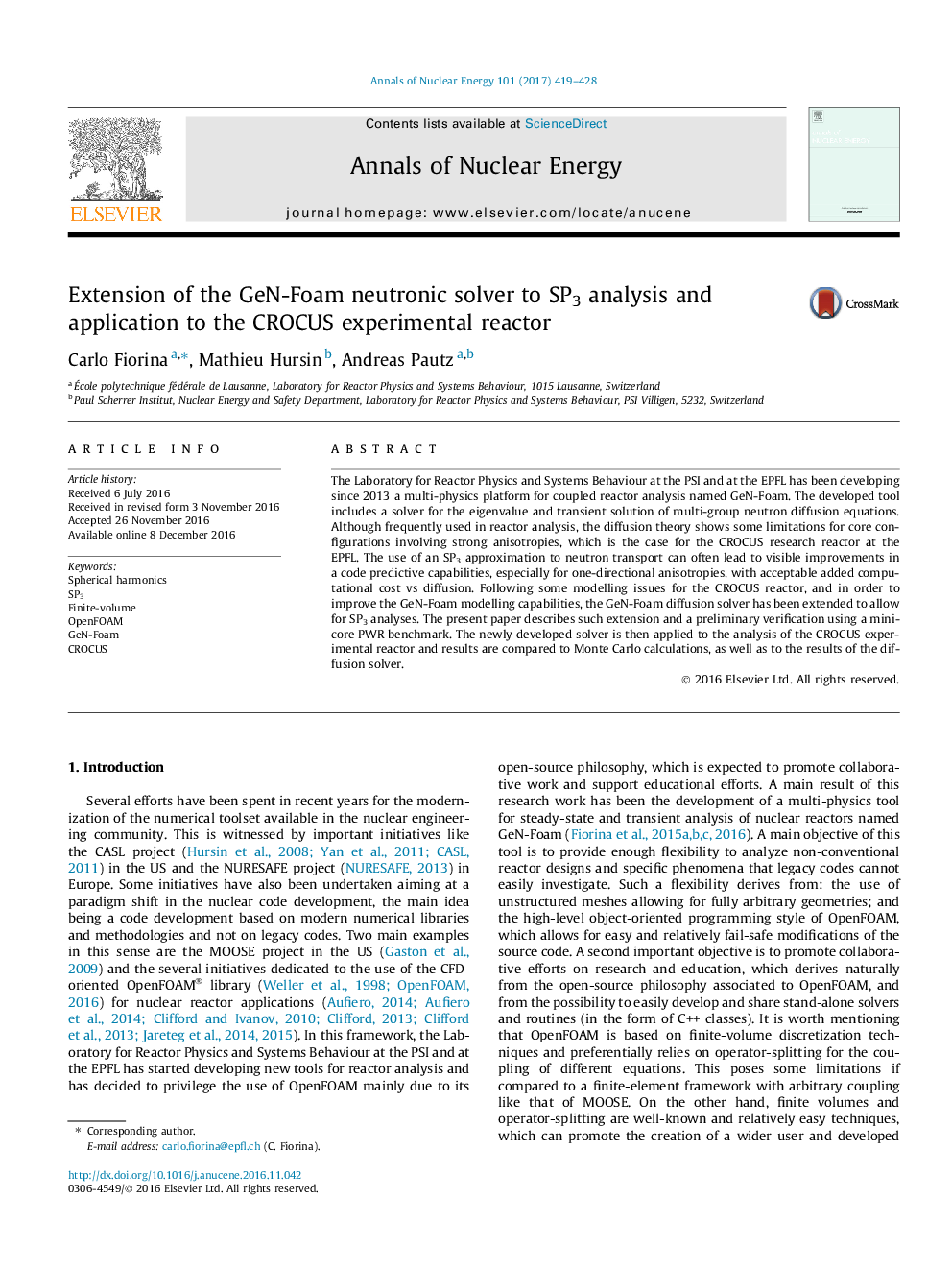| Article ID | Journal | Published Year | Pages | File Type |
|---|---|---|---|---|
| 5474887 | Annals of Nuclear Energy | 2017 | 10 Pages |
Abstract
The Laboratory for Reactor Physics and Systems Behaviour at the PSI and at the EPFL has been developing since 2013 a multi-physics platform for coupled reactor analysis named GeN-Foam. The developed tool includes a solver for the eigenvalue and transient solution of multi-group neutron diffusion equations. Although frequently used in reactor analysis, the diffusion theory shows some limitations for core configurations involving strong anisotropies, which is the case for the CROCUS research reactor at the EPFL. The use of an SP3 approximation to neutron transport can often lead to visible improvements in a code predictive capabilities, especially for one-directional anisotropies, with acceptable added computational cost vs diffusion. Following some modelling issues for the CROCUS reactor, and in order to improve the GeN-Foam modelling capabilities, the GeN-Foam diffusion solver has been extended to allow for SP3 analyses. The present paper describes such extension and a preliminary verification using a mini-core PWR benchmark. The newly developed solver is then applied to the analysis of the CROCUS experimental reactor and results are compared to Monte Carlo calculations, as well as to the results of the diffusion solver.
Related Topics
Physical Sciences and Engineering
Energy
Energy Engineering and Power Technology
Authors
Carlo Fiorina, Mathieu Hursin, Andreas Pautz,
